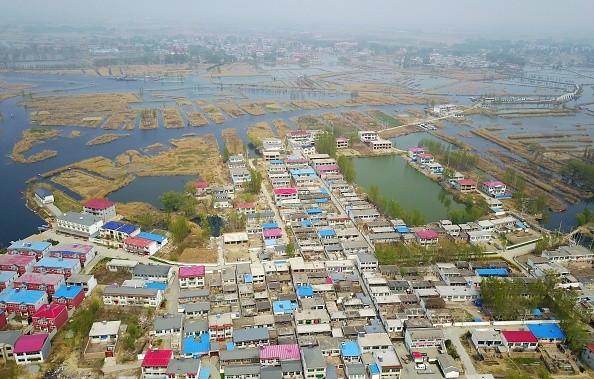Xiongxian County, a residential and industrial area previously unknown to many suddenly became a focus of interest for real estate agents and speculators in China's property market.
This came as China declared on Saturday, April 1, that the area that spans three counties about 80 miles of Beijing will become the Xiongan New Area, an economic driving force that is expected to push the country's future growth.
The new area will cover about 800 square miles when completed and will serve as a model for urban progress that will spur redevelopment in areas around Beijing, according to the government.
The government declaration immediately set off a surge in property buying and raising the stakes of construction companies, the New York Times reported.
This prompted the local government to freeze property buying in the area and temporarily shut down some real estate offices.
According to the report, prices for an apartment in Baigou, about 12 miles north of Xiongxian, increased from 8,750 renminbi per square meter to 12,000 renminbi (or more than $160 per square foot) within hours after the government announcement. Wen Yunlong, a real estate agent, said that it rose by an additional 3,000 renminbi on Sunday, April 2.
In the Hong Kong exchange, shares of BBMG Corporation, a cement maker based in Beijing, rose by nearly 35 percent on Monday, April 3. Shares of other firms engaged in property development also rose but only slightly.
In China, a property is considered a major investment, but government restrictions on the movement of money overseas and an unpredictable stock market have resulted in soaring home prices and the risk of a property bubble.
Chinese President Xi Jinping told media that Xiongan will "a demonstration area for innovative development". The area will become part of the country's grand plan to integrate development in Beijing, Tianjin and Hebei region.
The area called Jing-Jin-Ji, which includes Xiongan, is envisioned to became an economic hub that will drive Hebei's dependence on traditional industries, such as steel making, and someday compete with Shenzhen or Pudong.
But currently, the Xiongan area's economic output is only less than 1 percent of Beijing's and now, it is more popularly known for its donkey burgers.



























